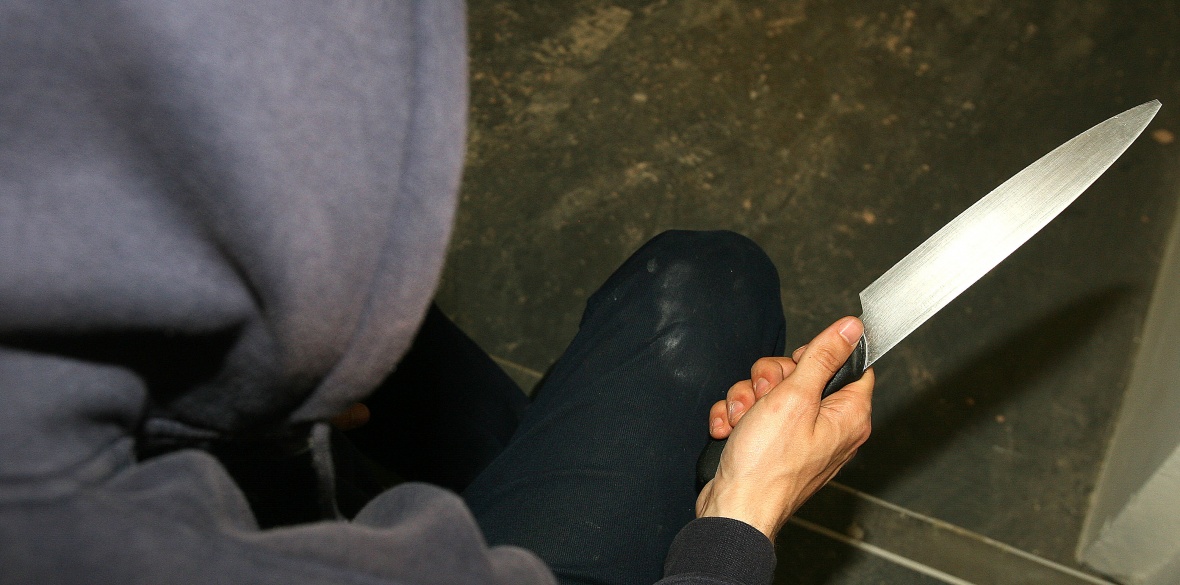This is the last article you can read this month
You can read more article this month
You can read more articles this month
Sorry your limit is up for this month
Reset on:
Please help support the Morning Star by subscribing here
A STUDY released this week suggested a clear link between rising knife crime and the severe cuts to council funding — and in particular related to this, services for young people — that have taken place in recent years.
The study comes from the all-party parliamentary group on knife crime (APPG) of MPs and peers from across the parties, who looked at budgets for youth services from 2014-15 to 2017-18, and also analysed knife crime data.
These figures on youth service budgets were obtained by using freedom of information requests sent to 154 local authorities in England, of which 106 replied.
The research found that the average council cut spending on youth services from 1.9 million in 2014-15 to 1.2m in 2017-18. This marks an astonishing cut of 40 per cent in real terms.
Of those that responded, 88 per cent had seen at least one youth centre in their area close.
They also reveal since 2011 a 51 per cent drop in the overall number of youth centres supported by English local authorities and a 42 per cent drop in youth service staff.
Separate Labour research has previously found £880m of cuts to youth service spending since 2010 — £70 per child — and that half of councils have cut spending per young person by more than three-quarters.
While it is important to understand that the comparison made here is not a direct, like for like comparison, as council and policing areas differ, the APPG’s study also suggests that four areas worst-hit by youth spending cuts also saw some of the biggest knife crime rises.
The research makes clear that police forces serving areas with the biggest cuts have also seen some of the highest increases in knife crime, such as West Midlands Police, the Metropolitan Police, Cambridgeshire Police and Thames Valley Police.
Specifically, West Midlands Police has seen an 87 per cent increase in knife crime offences since 2013-14.
There has been a 47 per cent rise for the Metropolitan Police, a 95 per cent increase for Cambridgeshire Police and a 99 per cent increase for Thames Valley.
Children’s charity Barnardo’s, which supported the research, said the figures were “alarming but sadly unsurprising,” adding that “taking away youth workers and safe spaces in the community contributes to a ‘poverty of hope’ among young people who see little or no chance of a positive future,” and that “the government needs to work with local authorities to ensure they have enough funding to run vital services and restore children’s sense of hope.”
The report follows the Tory peer Seb Coe recently condemning the government’s big cuts to youth services, saying that “we’ve strangled the life out of the youth services in this country, yet we are surprised that we have big problems in our inner cities.”
Additionally, Sir Keith Mills, deputy chair of the London 2012 Olympics organising committee, has also noted the link between the rise in gang violence and cuts to youth clubs and youth access to sports programmes.
And earlier this year, Gavin McKenna, a former gang member who now runs the Reach Every Generation group, said austerity was fuelling knife crime, and commented that “youth clubs are missing, [and] there’s no safe place in their communities to go.”
These cuts to youth services, of course, go alongside the Tories’ devastating, and continuing, cuts to our police, axing 21,000 officers.
Yet ministers continue to refuse to accept that their cuts to police forces have had any impact either on crime levels or the ability to apprehend the criminals.
The reality though is that these cuts have directly led to an unfolding crisis in our police services, with (to give just one example) the Greater Manchester chief constable Ian Hopkins recently saying that 60 per cent of crimes are not investigated.
The overall picture is that the Tories have overseen nearly a decade of the most savage cuts to policing, education, mental health and youth services, and remain in denial about how their reckless austerity policies have led to this crisis.
So, while the Home Secretary can say “public health approach” to knife and violent crime in as many speeches as he likes, until his government actually implements a fully resourced, genuine, cross-departmental public health strategy — alongside an end to the cuts — this is just hot air, and nothing will change.
It’s also important to note that the Tories are increasingly isolated when it comes to their continual denials regarding the consequences of their cuts, as more and more of the public simply don’t believe them.
Returning to the theme of this week’s report, as the APPG chair Sarah Jones MP said, youth services cannot just be “nice to have,” and “we cannot hope to turn around the knife crime epidemic if we don’t invest in our young people.”
In my constituency, when I speak to young people there, they all tell me they need more safe spaces and more positive activities.
It is vital that we invest in our future and that’s why the APPG is quite right to call for the government to review youth funding cuts.
Labour in government will introduce legislation to guarantee quality youth services for all of our young people and we will give our councils the funding they need to invest in our public services.
For the safety and security of all our communities, it’s time to end the reckless cuts and invest in our future.
You can follow Diane at www.twitter.com/HackneyAbbott and www.facebook.com/DianeAbbott.










